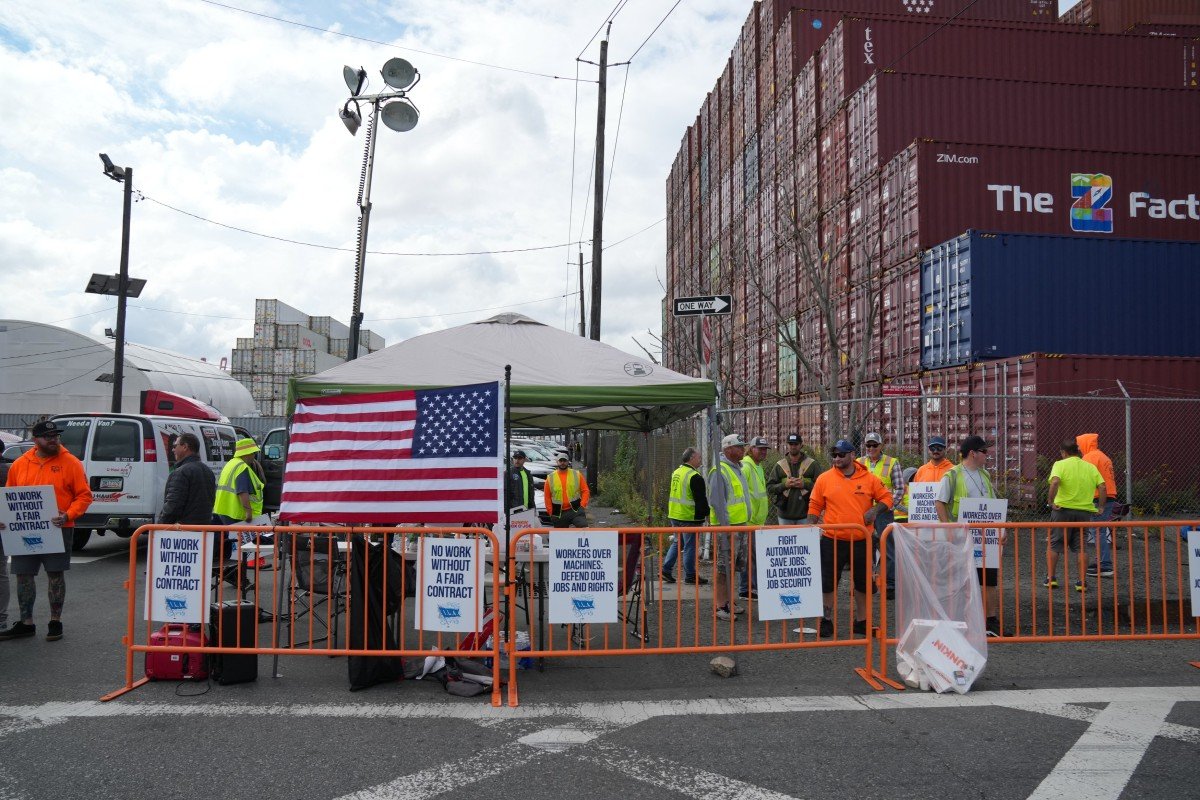
Longshoremen's strike in the United States threatens operations in key ports
About 50,000 members of the International Longshoremen's Association began a strike in the early hours of Tuesday, which could become the most significant port disruption in the United States in several decades.
Because of its Meanwhile, the United States Maritime Alliance, which acts as a representative of the ports, reported Monday night that they and the longshoremen had distanced themselves from their previous salary offers. Despite efforts in negotiations, the start of picketing just after midnight showed that no agreement could be reached.
This strike threatens to significantly affect the flow of goodsin the main ports of the country, which could have repercussions on the national and international supply chain. Businesses and consumers could face delays in the delivery of products, increasing pressure on an economy already affected by other recent challenges
Negotiations between the International Longshoremen's Association and the Maritime Alliance have been ongoing , but discrepancies in salary terms and working conditions have prevented a consensus.
No date has been set to resume talks, and in the meantime, the logistics industry and markets remain uncertain.
Potential Impact:
- Supply Chain: Possible delays in the import and export of essential goods.
- Economy: Negative impact on trade-dependent sectors maritime.
- Consumers: Increase in product prices and shortages in the short term.
The parties involved face increasing pressure both government and private industry to reach a quick resolution that avoids further economic consequences.
Government officials fear that the strike could negatively affect the gross domestic product, increase inflation and cause unemployment in sectors dependent on the maritime trade.
It is important to highlight that the affected companies depend largely on ports for the import of raw materials and the export of finished products. A prolonged shutdown could result in significant financial losses, production delays and decreased competitiveness in global markets.
